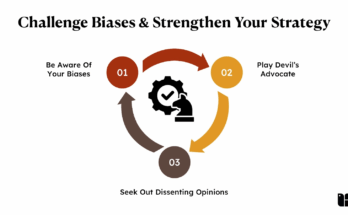In today’s crowded marketplace, having a recognizable logo or catchy tagline is no longer enough to make a brand stand out. Brands that truly succeed are those that create meaningful connections with their audience, evoke emotions, and build trust over time. Building a brand that resonates on a deep level goes beyond marketing tactics—it involves understanding the values, desires, and pain points of your audience and reflecting them authentically in every aspect of your business.
Why Resonance Matters in Branding
Brand resonance is about emotional connection. It’s the difference between a company people simply know and a brand people love. When your audience feels that your brand “gets them,” they are more likely to become loyal customers, advocates, and even ambassadors. This connection creates long-term value that goes far beyond transactional interactions. Emotional resonance drives consumer behavior because people often make decisions based on feelings first and rational logic second.
Think of brands like Apple, Nike, or Patagonia. Their logos alone evoke not just recognition, but emotion—innovation, determination, adventure, and purpose. Customers align themselves with these brands because their values match the brand’s values, creating a deep sense of loyalty. Achieving this level of resonance requires intentionality, strategy, and authenticity.
Understanding Your Audience
The foundation of a resonant brand is a deep understanding of your audience. Who are they? What are their goals, fears, and values? What problems are they trying to solve, and how do they want to feel in the process? This goes beyond demographics; it’s about emotional intelligence and empathy.

Market research, customer interviews, social listening, and data analytics are invaluable tools for uncovering these insights. By understanding the psychological and emotional drivers behind your audience’s decisions, you can craft messaging, products, and experiences that align with their desires. Brands that invest in truly knowing their customers are far more likely to establish meaningful connections.
Crafting a Brand Story That Resonates
Once you understand your audience, the next step is storytelling. A compelling brand story conveys your purpose, mission, and values in a way that connects emotionally. It transforms your brand from a faceless company into a relatable entity that inspires trust and loyalty.
Effective brand stories are authentic, transparent, and human-centered. They share not just what your company does, but why it exists and what it stands for. Stories of challenges overcome, meaningful achievements, or dedication to values create relatability and inspire audiences to see themselves as part of the brand’s journey.
Consistency Across Touchpoints
Resonance is reinforced through consistency. Every touchpoint—from social media posts to customer service emails, packaging, and website design—should reflect the same core values and messaging. Inconsistent experiences dilute brand identity and erode trust. Customers notice when the brand they follow online feels one way, but their real-world experience is completely different.
Maintaining consistency involves aligning visual identity, tone of voice, and messaging across all channels. This cohesive experience ensures that your audience perceives your brand as reliable, professional, and authentic, strengthening the emotional bond.
Designing Experiences, Not Just Products
A brand that resonates deeply focuses on experiences as much as products or services. How customers feel when interacting with your brand shapes their perception more than the product itself. Exceptional customer experiences—whether through seamless digital interfaces, personalized communication, or attentive service—build positive associations that contribute to loyalty.
Brands that prioritize customer experience often become part of customers’ lifestyles and identities. Consider brands like Starbucks or Tesla: their products are important, but the experience—the environment, service, and emotional impact—is what makes the brand resonate on a deeper level.
Building Trust Through Authenticity
Authenticity is a cornerstone of resonance. Audiences can easily detect when a brand is trying too hard to appeal to them or misrepresents its values. Authentic brands are transparent, honest, and true to their promises. They admit mistakes, celebrate successes, and communicate openly with their community.
When a brand consistently acts with integrity, it builds trust. Trust leads to loyalty, advocacy, and long-term relationships. In a world where consumers are increasingly skeptical of marketing messages, authenticity is a key differentiator.
The Role of Emotional Branding
Emotional branding is a strategy that intentionally seeks to create a deep connection with customers through feelings and experiences. This involves tapping into universal human emotions such as belonging, aspiration, security, or empowerment.
For example, a fitness brand might focus on empowerment and self-transformation, while a sustainable brand might emphasize responsibility and care for the planet. By aligning brand messaging with core emotional drivers, companies create connections that go far beyond functionality. Customers begin to see the brand as a reflection of their identity, values, and aspirations.
Engaging Communities Around Your Brand
A resonant brand thrives in community. People want to feel part of something bigger than themselves, and brands that foster communities encourage engagement, loyalty, and advocacy. This can be achieved through social media groups, brand events, interactive campaigns, or user-generated content.
By involving your audience in your brand story and giving them a platform to share experiences, you deepen emotional bonds. Communities create a sense of belonging, which strengthens the connection to the brand and encourages long-term loyalty.
Measuring Brand Resonance
While emotional connections are intangible, their impact can be measured. Customer engagement, repeat purchases, social media interactions, and Net Promoter Scores (NPS) provide insights into how well your brand resonates. Monitoring these metrics allows you to adjust messaging, experiences, and strategies to better align with audience expectations.
The Long-Term Benefits of Resonant Branding
Brands that resonate deeply enjoy long-term advantages:
Loyal customers who advocate for your brand without incentive.
Premium positioning because emotional connections often justify higher pricing.
Greater resilience during market challenges, as loyal audiences are more forgiving of mistakes.
Enhanced innovation because deep understanding of the audience informs product development.
Ultimately, resonant branding is not about quick wins or superficial impressions—it’s about cultivating a lasting, meaningful relationship with your audience.
Conclusion
Building a brand that resonates on a deep level is both an art and a science. It requires empathy, authenticity, consistency, and a commitment to understanding your audience’s needs, values, and emotions. By crafting compelling stories, delivering consistent experiences, prioritizing authenticity, and fostering communities, brands can create lasting emotional connections that inspire loyalty, advocacy, and trust.
The most successful brands are those that go beyond products and logos—they create experiences, emotions, and relationships that integrate seamlessly into the lives of their audience. In a world saturated with choices, the brands that resonate deeply are the ones that stand out, endure, and inspire meaningful connections that last a lifetime.




